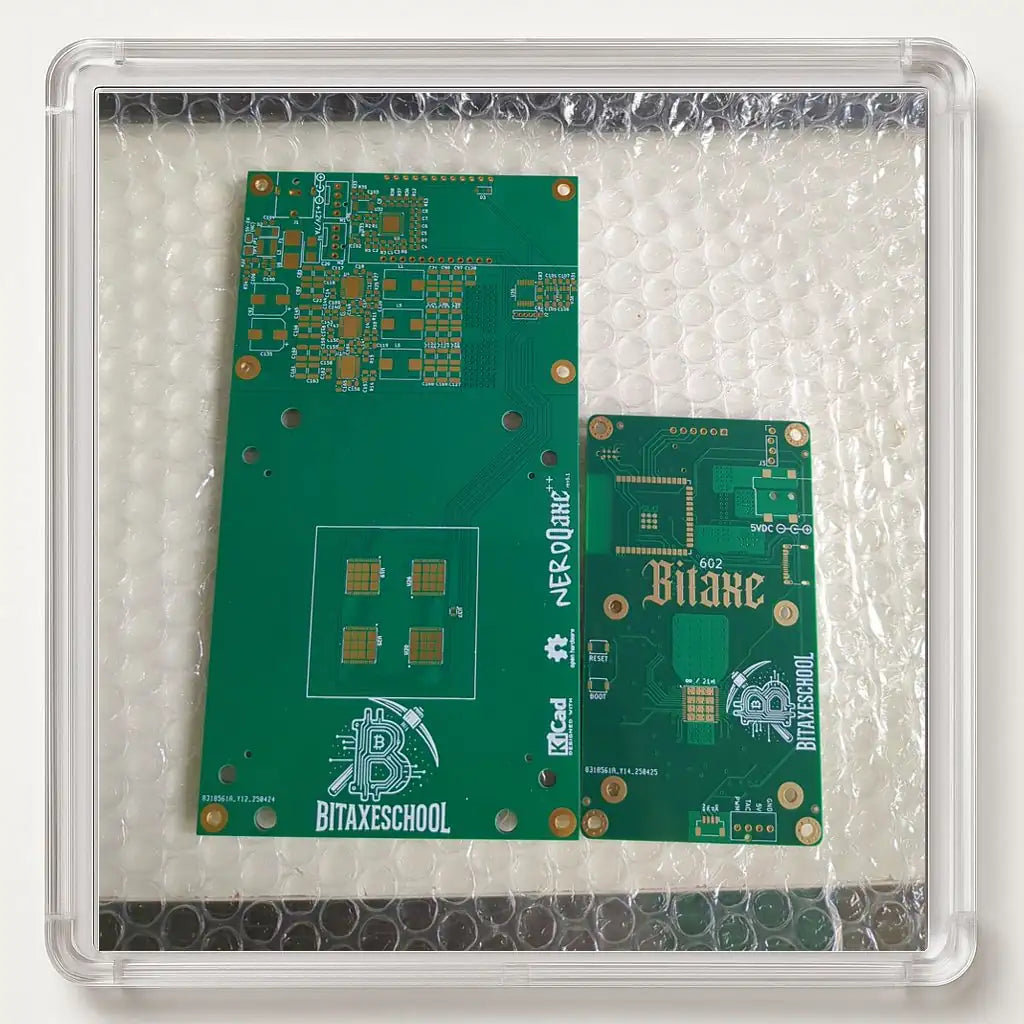
SOLO MINING, A POLITICAL ACT???
Share
Philosophy behind Bitaxe, Raspberry Pi and radical decentralization
At first glance, solo Bitcoin mining, especially with small devices like the Bitaxe or a Raspberry Pi, may seem marginal, even trivial compared to the vast industrial mining farms. Yet this simple act plugging in a machine, connecting an ASIC to a minicomputer, and attempting to find a block alone is in reality deeply political.
Reject centralization
Since its inception, Bitcoin has been built on a vision: a resilient, universally accessible network without a central authority. But over time, the concentration of hashrate in increasingly powerful mining pools has created an imbalance. Solo mining is a direct response to this shift. It embodies the desire to resist centralization by regaining control, block by block.
Bitaxe: the free miner's tool
The Bitaxe, this small open-source box combining an ASIC and a minimalist controller, isn't just a geeky gadget. It's a symbol. It makes mining accessible, transparent, and modifiable. Paired with a Raspberry Pi or a standalone ESP32, it allows anyone, at home, to participate in the network, even with a tiny probability of success. But it's not the statistical success that matters here, it's the gesture.
V602 Gamma: ever further towards autonomy
Bitaxe's constant evolution reflects the energy of its community. The V602 Gamma version, poised to become the new benchmark, pushes the boundaries of solo mining even further. More stable and powerful, it features an overclockable BM1370 ASIC, constantly improving firmware, a comprehensive web interface, and the ability to connect to your own Bitcoin node as well as third-party services via Stratum V2.
This new version paves the way for a true democratization of solo mining, without external servers or heavy infrastructure. Each firmware update, each hardware optimization, is another step toward radical decentralization, accessible to all.
Raspberry Pi Philosophy: Frugal Computing
Using a Raspberry Pi in this approach reinforces the ethical aspect: low energy, few resources, but high autonomy. It's the ultimate tool for hackers, tinkerers, and digital sovereignty advocates. The Raspberry Pi, like the Bitaxe, invites us to understand, learn, and modify. It opposes the logic of closed black boxes that can neither be opened nor repaired.
A symbolic gesture… but real
Mining alone is a statement that Bitcoin doesn't belong to industrial giants. It's bringing the cypherpunk utopia to life in your living room. It sends a clear message: "I participate in the security of the network. I don't delegate. I don't submit." Even if the block is never found, the message is well received.
A world of knots, no kings
Solo mining with Bitaxe is just one piece of the larger puzzle: a world made up of thousands of small players, not a few technical oligarchies. The same spirit drives personal nodes, full nodes on Raspberry Pi, and self-custody wallets. Each piece strengthens the whole. Every gesture is a vote for a free future.
🟠 Join the movement. Every block found solo is a victory for decentralization. Every connected Bitaxe is a middle finger to centralization. Welcome to The 100 Blocks .
👉 Also worth reading:
